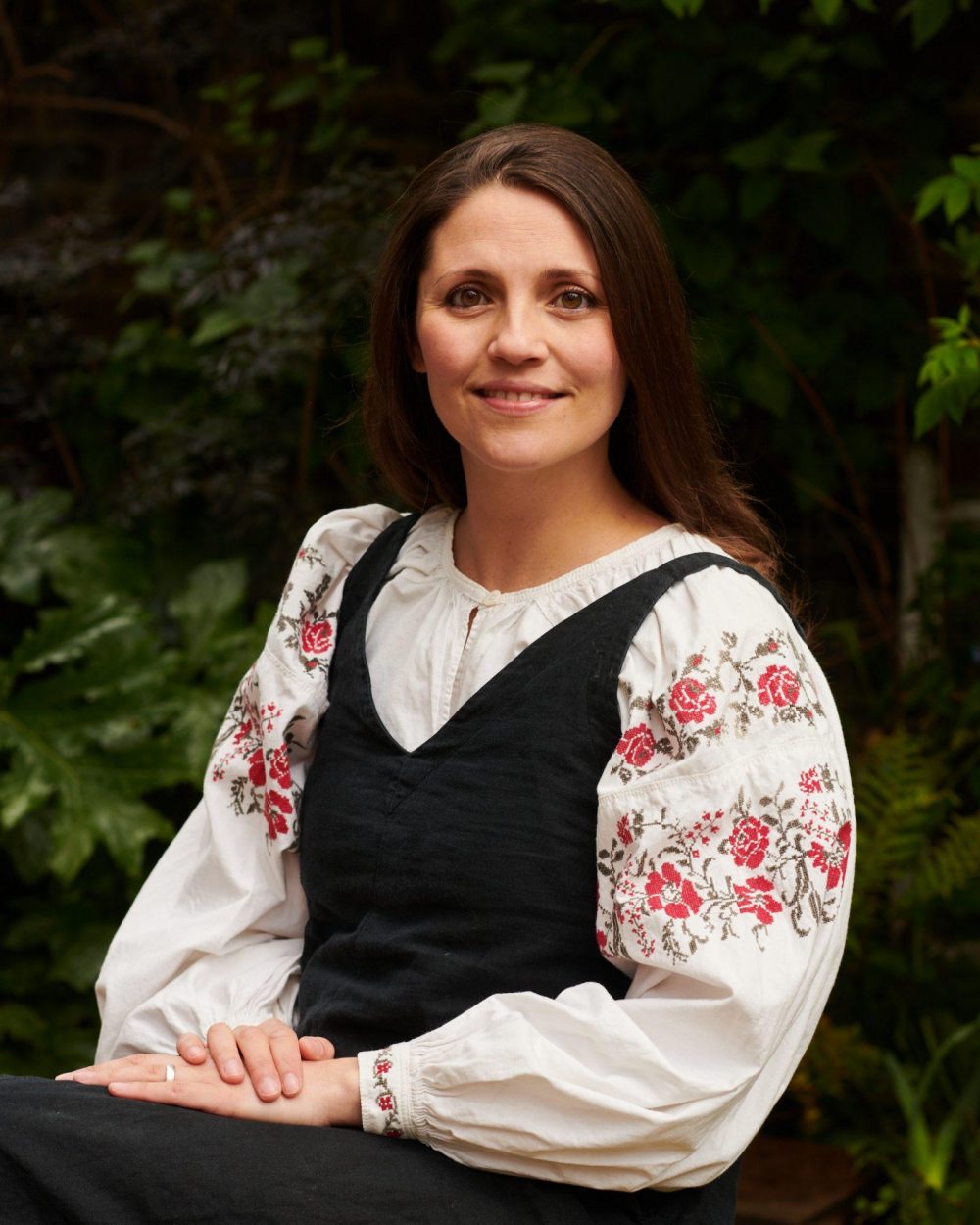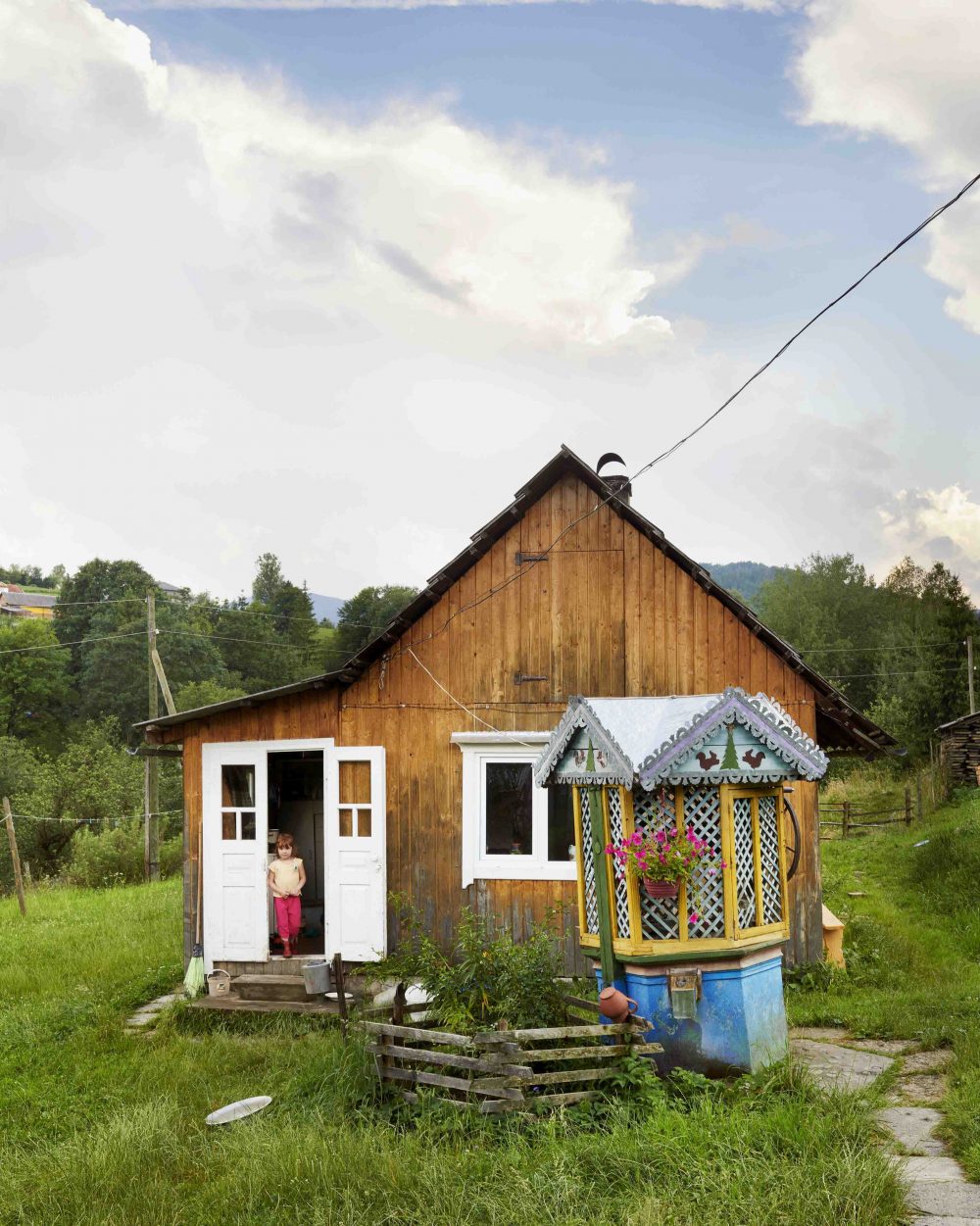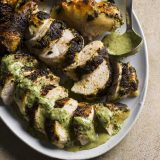
Olia Hercules
Listen now on Milk Street Radio
Olia Hercules is eager to debunk the notion of Ukraine as a harsh, snowy land with equally dour, gray food.
“People associate Ukraine with cold and Russia and the Soviet Union,” says the Ukrainian-born, London-based chef and author of multiple cookbooks on the food of her homeland. But actually, it’s an immense country, with a wide variety of landscapes, an abundance of agriculture and a cuisine rich with herbs and bold flavors. All of which feature prominently in her latest book, “Summer Kitchens.”
One of Ukraine’s greatest resources is what’s known as the chernozem: the ancient, rich soil that makes for especially lush gardens, particularly in the sunny southern region where summers are blazing hot. “The produce is just out of this world, really,” Hercules says.
So much of life in Ukraine has revolved around the garden, in fact, it’s where many Ukrainians kept their kitchens. In the middle of the vegetable patch, they built “summer kitchens,” small structures almost like miniature houses specifically designated for cooking. Though intended to help keep the main dwelling from overheating on sweltering days, these summer kitchens also were useful year round. They were where fruits and vegetables were fermented and preserved in the fall, and served as a space to prepare winter feasts.
Popular in the days before air conditioning, summer kitchens are something of a relic today, many forgotten, torn down or repurposed into storage sheds. But Hercules helps keep the memory alive in her book. With a photographer in tow, she traveled thousands of miles—from the Carpathian highlands to the marshes of Polisia—to track down these iconic spaces and document the traditional recipes from the people who’ve cooked in them.
Throughout, her book exudes a palpable sense of wonder, though tinged with a wistfulness and even urgency. Hercules fears how much knowledge of pre-Soviet Ukrainian foodways will be lost with the passing of her grandparents’ generation. “All of this information is still there. But I don’t know for how long,” she says. “I’m so glad that I got to see all that.”

Summer kitchens appear throughout Ukraine.
Still, she’s hopeful that the future holds a place for the summer kitchen. As she notes in her book, “I have met some dedicated young people who are interested in resurrecting their summer kitchens.” And there are signs that younger Ukrainians are rediscovering their culinary roots in other ways, too. Hercules points to chefs like Yaroslav Artyukh, who takes “the kind of traditional recipes that your old babushka makes”—smoked pear borsch, for example—and gives them the haute cuisine treatment. “There’s so much that has been forgotten that we can delve into,” she says.
The recipe trove in “Summer Kitchens” also reveals much about the bounty harvested from the fertile Ukrainian chernozem: plums fermented in hay, bilberry doughnuts, a springtime soup made from foraged greens. And many dishes with lots and lots of herbs.
Herbs hold a special place in Ukrainian cooking, with recipes often calling for them by the fistful. “In the south of Ukraine, where I’m from, there’s almost a Turkish vibe going on with food, because parts of it were a part of the Ottoman Empire for quite some time,” Hercules says, offer- ing the garlicky, pesto-like herb paste known as lyok as an example of Mediterranean influences. She vividly recalls market bazaar stalls piled high with “massive bunches of dill, parsley, coriander, purple basil, green basil, sorrel, you name it,” ready to be pounded into lyok.
It’s this love of herbs that inspired one of Hercules’ favorite recipes in “Summer Kitchens,” a whole roasted chicken slathered in crème fraîche blended with copious herbs, including the stems. In Ukraine, crème fraîche (or the local version, an exceedingly rich soured cream known as smetana) often is smothered over dishes before roasting. Its high fat content gives the chicken a beautifully burnished golden-brown skin. It also creates an herb-infused sauce as it cooks. “The herb idea was my twist on it, which felt natural because we do use herbs quite a lot in that way,” she says. “It’s so simple but so delicious, and it creates this amazing sauce that you can just toss with potatoes or whatever. It’s so good.”
We loved how Hercules’ herby crème fraîche plays multiple roles. The lactic acid in the crème fraîche counters the richness of the chicken, while also helping to tenderize the meat. It also has a high enough fat content that it doesn’t curdle in the heat of the oven. Between the sugars and fats, it browns the meat as well as butter. But while butter just slides off in the heat, the crème fraîche clings to the surface. As with many of the recipes in “Summer Kitchens,” her technique is a revelation.




